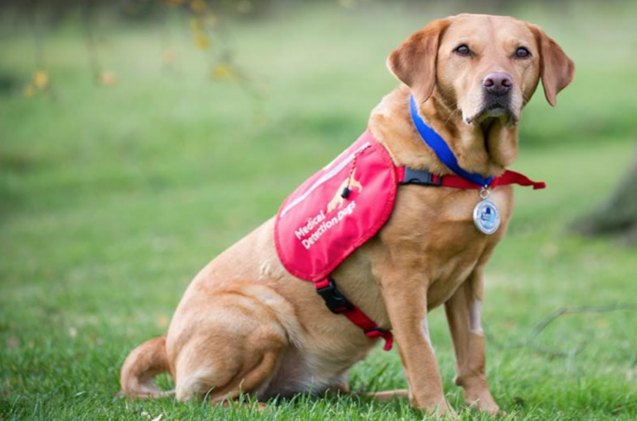Researchers to Study If Dogs Can Detect Prostate Cancer

In Milton Keynes, England, a research project partially funded by the National Health Service and overseen by the charity Medical Detection Dogs will attempt to prove how accurately dogs can detect cancer in humans. The study will utilize eight dogs of random breeds, including Labradors and Spaniels, who are receiving training to sniff out cancer using samples from real patients who have been diagnosed cancer already.
The dogs being used in the study are all pets who are living with families, and were selected because of their incredible sniffing abilities. A dog’s sniffer can detect what would equate to a single drop of blood in an area as large as two Olympic-sized swimming pools!
Rob Harris, the bio-detection training manager of the study says that the dogs are being trained to look for the volatile signature for prostate cancer, and are using their amazing sense of smell to do so. They are training to analyze the chemicals that come from urine samples, and then to further sniff for a pattern that resembles the signature pattern specific to prostate cancer.
Related: Does Your Dog’s Nose Hold The Key To Early Cancer Detection?
Chief Executive of Medical Detection Dogs Dr. Claire Guest says that the dog is a highly sophisticated bio-sensor with a furry coat and waggy tail. That said, the science results are no less real because the subjects are dogs, and that if they can prove that the dogs have an accuracy level that is 90% reliable, they would then have the most reliable form of testing for prostate cancer available. The dog’s ability to do so can make a huge difference in cancer detection.
That’s why the charity believes dogs can make a real difference to prostate cancer detection. Though prostate cancer is common and affects one in seven men, it can be difficult to diagnose as there is no one specific test to do so. Even current blood tests fail to find cancer in up to 15% of men, while giving false positive information in over three-quarters of cases. To be able to have a way to detect cancer more specifically and quickly can make all the difference in the efficacy of treatment once detected.
Related: What You Need To Know About Dog Seizures
While Dr. Guest believes this work can make a huge impact in the way prostate cancer is detected, and then in turn, treated, there is still some concern about whether the science will be valid. Dr. Iain Frame of Prostate Cancer UK says that they are not as sure that the study will show success as the researchers are already having issues with the dogs being able to identify between aggressive and nonaggressive cancer. Dr. Frame’s concern is that the detection of something in someone’s urine by the dogs may be just that–and still require other assessments for being able to determine whether or not it is an aggressive cancer.
Still, researchers at Medical Detection Dogs are hopeful, and say their trial will look at ways to account for those concerns, as well as how to differentiate between the severity of the cancers found. It’s their hope that their work will lead to the National Health Service to use their dogs in screening programs designed specifically for cancer detection.

More by Lori Ennis






















